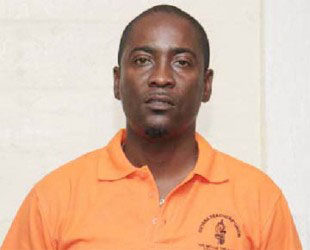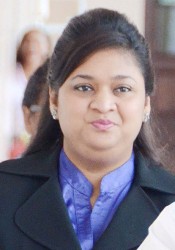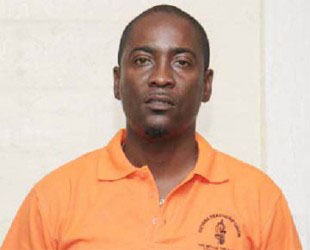A proposal by the Ministry of Education (MoE) to limit the number of subjects students can sit at the Caribbean Secondary Education Certificate (CSEC) examination may have found favour with the Guyana Teachers Union but former Minister of Education Priya Manickchand says that it is ill thought out and dumb.
“Our students are pressured to take too many subjects, all for bragging rights,” GTU President Mark Lyte told this newspaper yesterday. “All someone needs for employment or to further their studies is five subjects inclusive of Mathematics and English. So the union supports this move by the ministry.”

Lyte’s position is in direct contrast to that of Manickchand who had responsibility for the Education Ministry during the Donald Ramotar administration.
The present Shadow Minister of Education told Sunday Stabroek yesterday that the policy does not appear to be based on any data and is therefore flawed.
“It’s absolute stupidity. You have to go out and find out if such a policy is actually required. Sitting on your butt and making these broad sweeping policies is dumb,” she said.
Manickchand questioned the reasoning used by former Minister of Education Dr Rupert Roopnaraine in support of this policy.
Roopnaraine had repeatedly stated that he believed Guyana’s children were not rounded enough because they were doing too many subjects and were therefore unable to engage in extra and co-curricular activities.
Manickchand argued that in reality the few students who write 15 or more subjects are involved in several activities while those who write 5 or 6 subjects are not.

She provided the example of Ashley Anthony, the daughter of Member of Parliament Dr Frank Anthony, who is a published author.
“Look at the daughters of Justice George, these girls have written a large number of subjects and they are squash champions, play the piano and speak a foreign language,” she said. Both Akeila and Larissa Wiltshire have secured passes in 17 CSEC subjects while dominating in squash.
Additionally, Manickchand noted that only a small number of students who have proven their capabilities are allow-ed to write these subjects.
“You have let’s say 1,000 students writing CXC and about 30 to 50 writing a large number of subjects and they go through a rigorous process which will determine that they are ready and capable of sitting these number of subjects. Schools don’t register any and everybody to write 15 subjects,” she stressed.
The Member of Parliament has indicated her intention of challenging the reasoning behind the policy through written questions in the National Assembly.
“How many children wrote CXC in the last 5 years per year? How many wrote 15 or more subjects in the last 5 years per year? How many of them passed all 15 or more subjects per year? How many of those were involved in at least one extra-curricular activity per year? What sports and music programmes have been put in schools that students would be unable to pursue if they write a large number of subjects? These are the questions I intend to put before the house,” Manickchand explained.
She noted that while art, music and sport are important there is no evidence that these programmes have been developed within the last two years or that pursuing a large number of subjects, with syllabi taught from the fourth year prevents students from participating in these programmes.
Misguided
Other educators, parents and students whose comments were sought yesterday have also labelled the attempt to limit the number of subjects Guyana’s children can write at one sitting as misguided.
According to one parent Michele Fraser, whose daughter wrote 16 subjects at this year’s examinations; a blanket limitation would deny students the opportunity to determine their own life path in an increasingly complex world.
“My child decided since first form that these were the subjects she wished to write. I was at first skeptical but she convinced me,” she said. “What would I have been saying to her if I had limited her? In the end it was a decision made with contributions from me, the parent, my child and the teachers and that is how it should be.”
Sophia King, who wrote 13 subjects in 2010, explained that she chose to write the number of subjects she did not just because she was confident of her results but because they represented her only opportunity to be exposed to certain topics and ideas.
King, who has since completed a Bachelor’s Degree in Chemistry and is now pursuing her Master of Science in Materials Chemistry at the Univer-sity of California, Los Angeles, maintains that she does not regret her choice.
“I don’t regret writing any of them because they’re all useful to me now. There are a lot of holes in our education system, but limiting the number of subjects students write will not fix that. Yes, Google is there and free but sometimes you need inspiration from somewhere to send you down rabbit holes and often you don’t get the spark from day-to-day life. For me these subjects offered that,” she explained.
Potential
Similar sentiments were expressed by two senior teachers, who did not wish to be identified. The teachers, who are attached to a senior secondary school, noted that blanket policies are never helpful when attempting to develop a student’s full potential.
“The policy may be a good thing for some schools, where teachers either don’t or are unable to advise the children and then they write subjects they cannot handle, or which do not make them employable. But for spaces which have an environment that can facilitate a wider scope for the students it is not a good idea,” one of the teachers stated.
On the other hand, the teachers have noted that the criteria set out by the Ministry of Education might require that the ministry fulfils certain responsibilities which it has failed to live up to over the years.
“The MoE has suggested a list of streams and subjects that match the CSEC list. They have asked that schools follow them. This will force the MoE to staff the schools with teachers for these subjects, which is good. Often we find that a student is not able to pursue an area of interest because we do not have teachers to teach it. But if the ministry decides that these areas must be taught then they must provide teachers,” they explained.
This newspaper reached out to Roopnaraine under whose tenure the memo which speaks to the subject limit was crafted and circulated but received no response. Attempts to contact Chief Education Officer Marcel Hutson also failed.
However, this newspaper was able to secure a copy of the memo which directs that each child must write at least five subjects inclusive of Mathematics and English.
The memo details four streaming options of Arts, Business, Science and Technical and Vocation Education.
Each stream list Mathe-matics, English Language and English Literature as compulsory subjects.










